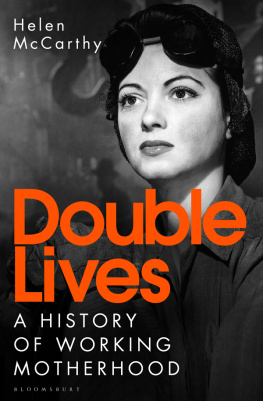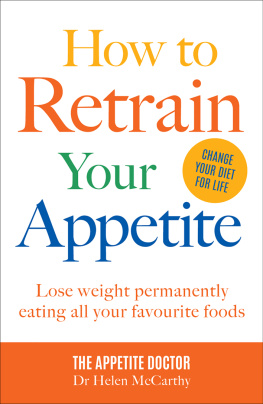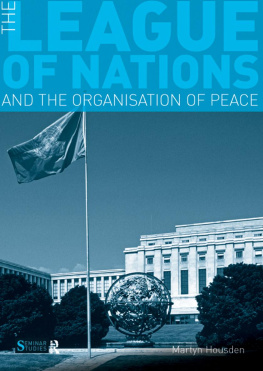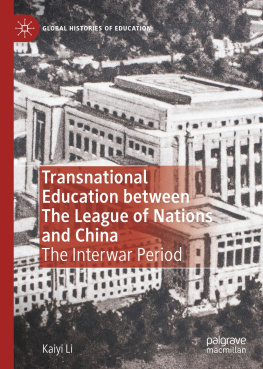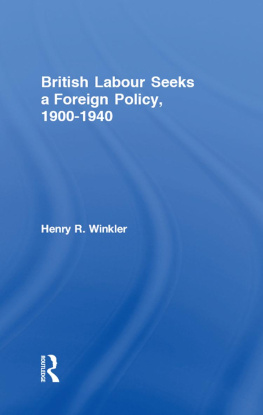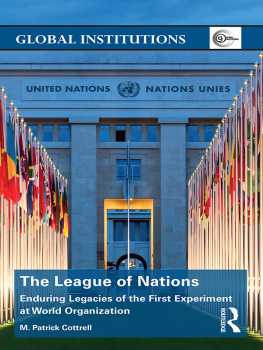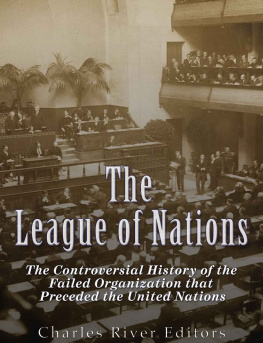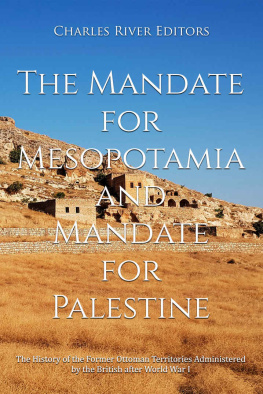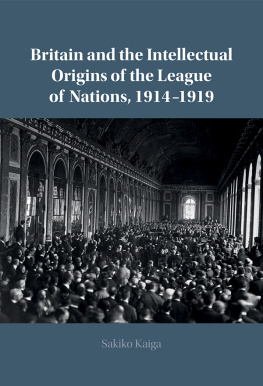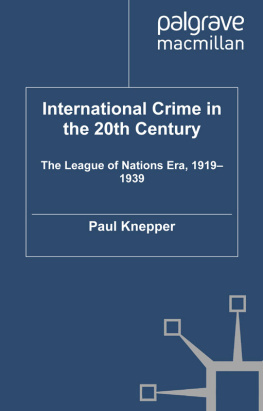The British people and the League of Nations
The British people and the League of Nations
Democracy, citizenship and internationalism, c.191845
Helen McCarthy
Copyright Helen McCarthy 2011
The right of Helen McCarthy to be identified as the author of this work has been asserted
by her in accordance with the Copyright, Designs and Patents Act 1988.
Published by Manchester University Press
Oxford Road, Manchester M13 9NR, UK
and Room 400, 175 Fifth Avenue, New York, NY 10010, USA
www.manchesteruniversitypress.co.uk
Distributed in the United States exclusively by
Palgrave Macmillan, 175 Fifth Avenue, New York,
NY 10010, USA
Distributed in Canada exclusively by
UBC Press, University of British Columbia, 2029 West Mall,
Vancouver, BC, Canada V6T 1Z2
British Library Cataloguing-in-Publication Data
A catalogue record for this book is available from the British Library
Library of Congress Cataloging-in-Publication Data applied for
ISBN 978 0 7190 8616 8
First published 2011
The publisher has no responsibility for the persistence or accuracy of URLs for any external or third-party internet websites referred to in this book, and does not guarantee that any content on such websites is, or will remain, accurate or appropriate.
Typeset in Caslon
by Servis Filmsetting Ltd, Stockport, Cheshire
Printed in Great Britain
by CPI Antony Rowe Ltd, Chippenham, Wiltshire
Contents
Acknowledgements
By all rights, this book should have been an account of professional womens organisations in twentieth-century Britain, the topic I intended to research when I left my think-tank job in 2004 to return to the academic fold. That it has ended up a study of popular internationalism and British political culture between the wars is testimony to the dynamic and gloriously unpredictable nature of historical research (either that, or the extraordinarily ill-disciplined mind of the author). Perhaps the book on professional women will eventually be written, but in the meantime I must offer my profound gratitude to the many individuals who contributed to its metamorphosis into the present work.
Top of the list is Pat Thane, who supervised the doctoral thesis on which the book is based, and whose formidable knowledge and good sense ensured that the project remained not only intellectually robust but logistically doable. I also benefited immensely from the excellent advice of my examiners, Jose Harris and Philip Williamson, and from the combined wisdom of Jon Lawrence, Geoffrey Searle, Adrian Bingham and Michael Kandiah, who upgraded the thesis in years one and two, an experience which could hardly have been as mentally stimulating and constructive for them as it was for me. Philip Williamson also commented extensively on the revised manuscript, for which I am profoundly grateful. David Cannadine, who employed me as an assistant during the course of my doctoral studies, was and remains an inspiring and generous mentor and I doubt if the debt I owe him will ever be repaid. I was also fortunate in being guided by the trusty intellectual compass of Peter Mandler, whose interest and encouragement in the later stages of the project restored my enthusiasm and refreshed my thinking in ways which immeasurably improved the final manuscript. Others who have offered intellectual companionship along the way include Scott Anthony, Laura Beers, Lawrence Black, Rowan Boyson, Kate Bradley, Matthew Cragoe, Tanya Evans, Liza Filby, Daniel Laqua, James Moore, Susan Pedersen, Mel Porter, Paul Readman, Katharina Rietzler, Simon Szreter, Mari Takayanagi and Dan Todman.
The research for this book was made possible by a doctoral award from the Arts and Humanities Research Council which, combined with the unique resources and location of the Institute of Historical Research, made my postgraduate experience a most pleasurable one. Ive lost count of the number of archivists who opened their strong-rooms at my request, but thanks must go to staff at the British Library of Political and Economic Science, the Bodleian Library, the Churchill Archives Centre, the Womens Library, the British Library and the London Metropolitan Archives, as well as the score or so of county record offices whose treasure trove of local sources enabled me to explore the League movement from the bottom up. I had the good fortune to be elected to a Junior Research Fellowship at St Johns College, Cambridge in October 2008, which enabled me to revise the manuscript with only a feast or two by way of distraction. The finishing touches were applied at my current home at Queen Mary, University of London, where a rookie lecturer could not wish for a finer group of colleagues. Emma Brennan and the rest of the team at Manchester University Press have been a pleasure to work with and guided the manuscript through the publication process with great efficiency and professionalism.
The final vote of thanks must be reserved for James Mather, whose unfailing support, critical mind and generous nature have shaped both the book and its author into what they are today, and for Florence. The joy she has brought into our lives helps to put the stresses and strains of book-writing, along with so many other things, into some kind of perspective. I hope one day she may read it and not find it too horribly dull.
Introduction: the respectable face of troublemaking
During the first of his Ford lectures of 1956, AJP Taylor drew an analogy with religious conscience in order to distinguish the great dissenters of British foreign policy of the previous two centuries from the mere critics: A conforming member of the Church of England can disagree with the Bishops and, I understand, often does. A Dissenter believes that Bishops should not exist. The same rule, Taylor insisted, applied in foreign affairs. A man can disagree with a particular line of British foreign policy, while still accepting its general assumptions. The Dissenter repudiates its aims, its methods, its principles.
This book offers an alternative interpretation of the popular League movement in Britain. It argues that, whatever its ultimate failings as a mechanism of collective security, the League inspired a rich and participatory culture of political protest, popular education and civic ritual which took root in British society between the wars. This League consciousness found expression through the establishment of voluntary societies in dozens of countries across Europe and beyond, but touched Britain in particularly profound ways, above all through the remarkable work of the LNU. Foremost among the League societies, the LNU became one of Britains largest voluntary associations and a powerful advocate of democratic accountability and popular engagement in the making of foreign policy. By cultivating allies in the political parties, peace societies, churches, schools and an array of civic associations, the Leagues champions in Britain mobilised broad sections of the population in support of a collective system of international relations. This book explains how this was achieved and why the story of the League movement forms an integral part of the larger history of the democratisation of Britains political culture between the wars.


